MercoPress. South Atlantic News Agency
Antarctica
-
Tuesday, September 21st 2021 - 08:50 UTC
IAATO preparing for the season with tour operators and Antarctica Gateways
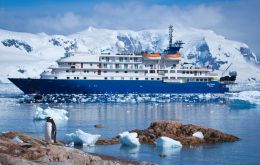
The International Association of Antarctica Tour Operators (IAATO) is preparing for the start of the Antarctic travel season following months of discussion and collaboration with Antarctic gateways.
-
Wednesday, September 15th 2021 - 21:22 UTC
New Research and Monitoring Plan for South Georgia & South Sandwich Islands Marine Protected Area
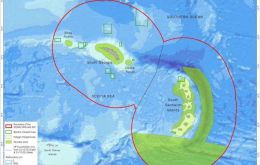
A new Research and Monitoring Plan is being launched today to help support the management of South Georgia and the South Sandwich Islands and Marine Protection Area, MPA, points out the SGSSI Newsletter.
-
Wednesday, September 15th 2021 - 11:55 UTC
Back to earth: Ushuaia admits much uncertainty about the coming cruise season
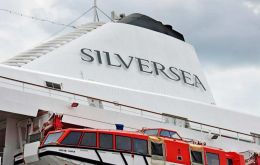
The recent decision by Silverseas Cruises to move its operations to neighboring Punta Arenas and Puerto Williams in Chile, has shaken Tierra del Fuego and Ushuaia officials who are complaining that the Argentine government, despite promises, has yet to deliver the sanitary protocol for vessels and crew, calling in Ushuaia, plus announcing when borders will be opened.
-
Monday, September 13th 2021 - 08:29 UTC
Antarctic cruise company abandons Ushuaia and moves to Punta Arenas

Punta Arenas, the extreme south of Chile will be hosting Silversea Cruises as its base of operations, having decided to abandon Ushuaia in Tierra del Fuego. Silversea announced a release in which it makes official its Antarctic cruise operations during the 2021/22 season, following an agreement with Chilean officials.
-
Saturday, September 4th 2021 - 10:22 UTC
Chilean company announces first Antarctic cruise on 3 December, from Punta Arenas
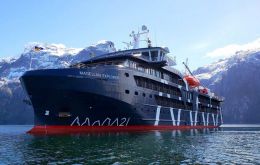
A Chilean company Antarctica21 is planning 17 Antarctica cruises this coming season, leaving from Punta Arenas, the first of which is scheduled for December 3rd, with an only vessel the Magellan Explorer.
-
Friday, September 3rd 2021 - 08:04 UTC
South Georgia stamp release to celebrate the return of whales to the recovered ecosystem
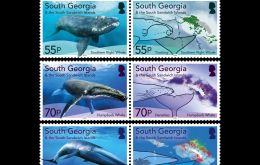
The Government of South Georgia & the South Sandwich Islands announced the release of a new stamp set to celebrate the recovering ecosystem of the Territory and in particular whales, according to the latest edition of the South Georgia and South Sandwich Islands Government Newsletter.
-
Thursday, September 2nd 2021 - 09:19 UTC
Nobody goes ashore as ARA Libertad docks in Chilean port of Valparaíso

No crew member of Argentina's training sailship ARA Libertad was allowed to go ashore as the vessel docked in the Chilean port of Valparaíso while diplomatic tension between the two countries mounts.
-
Wednesday, September 1st 2021 - 09:59 UTC
Uruguayan Mayor expectant on return of Argentine tourists
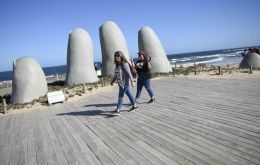
Enrique Antía, Mayor of the Uruguayan department of Maldonado where the elite Punta del Este beach resort is located Tuesday warned of actions by the Buenos Aires Government of President Alberto Fernández to persuade vacationers against travelling abroad next Summer.
-
Tuesday, August 31st 2021 - 08:56 UTC
Chile announces sanitary protocol for tourists on cruise expeditions to Antarctica
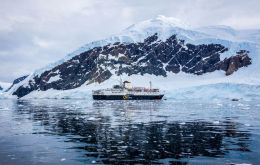
Chile announced on Monday that foreign tourists on cruise expeditions to Antarctica can call and land in the country as long as they comply with a strict sanitary protocol. Andrea Wolleter, head of Chile's tourism services made the announcement following on reiterated petitions from organizations linked to the tourism industry as well as regional and city officials.
-
Thursday, August 26th 2021 - 08:50 UTC
Project with Falklands' SAERI to safeguard South Georgia’s Blue Belt
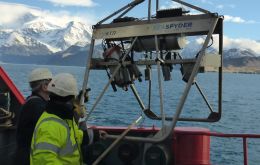
Following a horizon scanning exercise that identified marine invasive species as a key threat, the Government of South Georgia & the South Sandwich Islands (GSGSSI) is embarking on a marine bio-security project with the Falkland Islands based South Atlantic Environmental Research Institute (SAERI).
